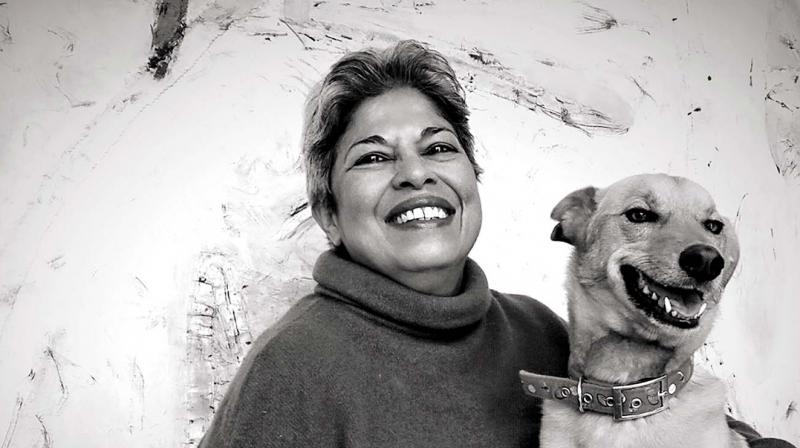No place is my final destination: Tanya Mandosa

Tanya Mandosa is a poet for whom poetry appears as resonance everywhere in the world. Staying far away from civilisation, she rejoices the nature of her own. Her first book relates to the journey of the author abroad, and the second part relates to the time she came back to India.
The poet is one of the veteran writers born and raised in India. She always had a way with words and was inclined towards writing and writes something very pertinent to the times we are living in.
Excerpts from an interview with Tanya Mendonsa on her recent book “The Fisher of Perch”:
Why is ‘The Fisher of Perch’ a single poetry having some sections instead of being a collection?
‘The Fisher of Perch’ is a fable for our times, a story in verse, as such; it is a single long poem in short verses. A writer friend who read it said that she felt I was like Scherezade, holding her in suspense as the story unfolded, although it is a very simple story. It is a story of a man searching for his soul and finding it in solitude and in the beauty of his surroundings.
Who was the character ‘Fisher’? How is it relevant to the appearance of ‘Fisher’?
The ‘Fisher of Perch’ is set in a place where there are hills and a river — it could be anywhere in the world — that is why I called it a “A Fable for our Times”. The Fisher comes on the scene with no name, no ties, no history, except for a secret love in his past. He could be — and is meant to be — ‘Everyman’. He embodies all of us, any of us who leave our old lives to make a new one; away from “the shark’s teeth of the world”. He is then born again into a natural way of life, where he lives in harmony with everything around him —the flora and the fauna, the hills and, especially, the river, which changes his life.
What made you to write poetry?
I moved to the Blue Mountains of the Nilgiris six years ago, to build a house in the middle of a remote tea plantation. For the past 20 years, ever since I came back to India from Paris, I have been gradually moving away from cities, and everything they represent, from Bangalore to Goa and now to the mountains. Like the Fisher, (who seems very much a real person to me!) I want to live a life that is more natural, a life in tune with the seasons and the organic changes that they bring. I also increasingly feel the importance of water in my life — water is life, we cannot live without it. We have abused the planet so badly, and now it is fighting back. The poem in that sense mapped my inner ruminations on the subject.
How do you spare time to spend with the animals you love?
I think animals are the very best companions in the world. The best way to spend time with them is simply to be with them, and to let them be with you. When you see your dog leaping into the air on all four feet at the idea of going on a walk in the hills with you is an expression of the purest joy that can exist. Animals want nothing from you but your love.
If I told my beloved cocker spaniel Joshua (whom I wrote about in my memoir “The Book of Joshua”) that I was going to make him a banana cake and I forgot, he would bring me back to my senses by barking madly in the kitchen and reaching up to thump the door of the oven, as if to say, “get on with it !”
What were your thoughts on World Poetry Day’?
I am thinking of how poetry has changed my life. From the very first poem I learned to recite, R. L. Stevenson’s “Dark brown is the river, golden is the sand’ I saw pictures in poetry. This helped me later when I started to paint. I think of poetry as a river washing over the world, cleansing and invigorating and healing it. At no time has so much poetry been written by so many poets — this simply goes to prove that it is needed. It is perhaps unfortunate that so much of it is on the internet and not in print, but in the end that doesn’t matter — it is there, it is living, and it is being read.

